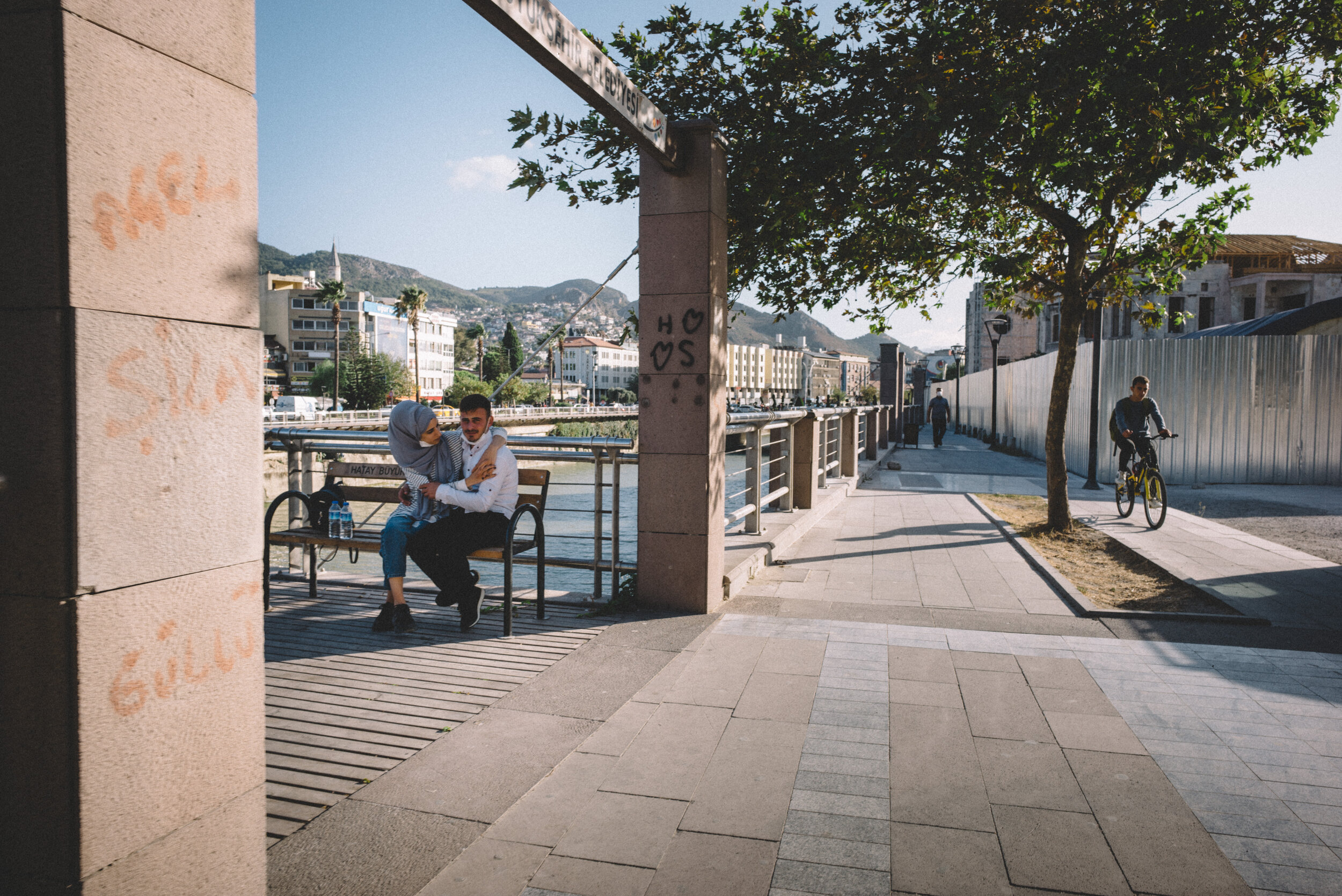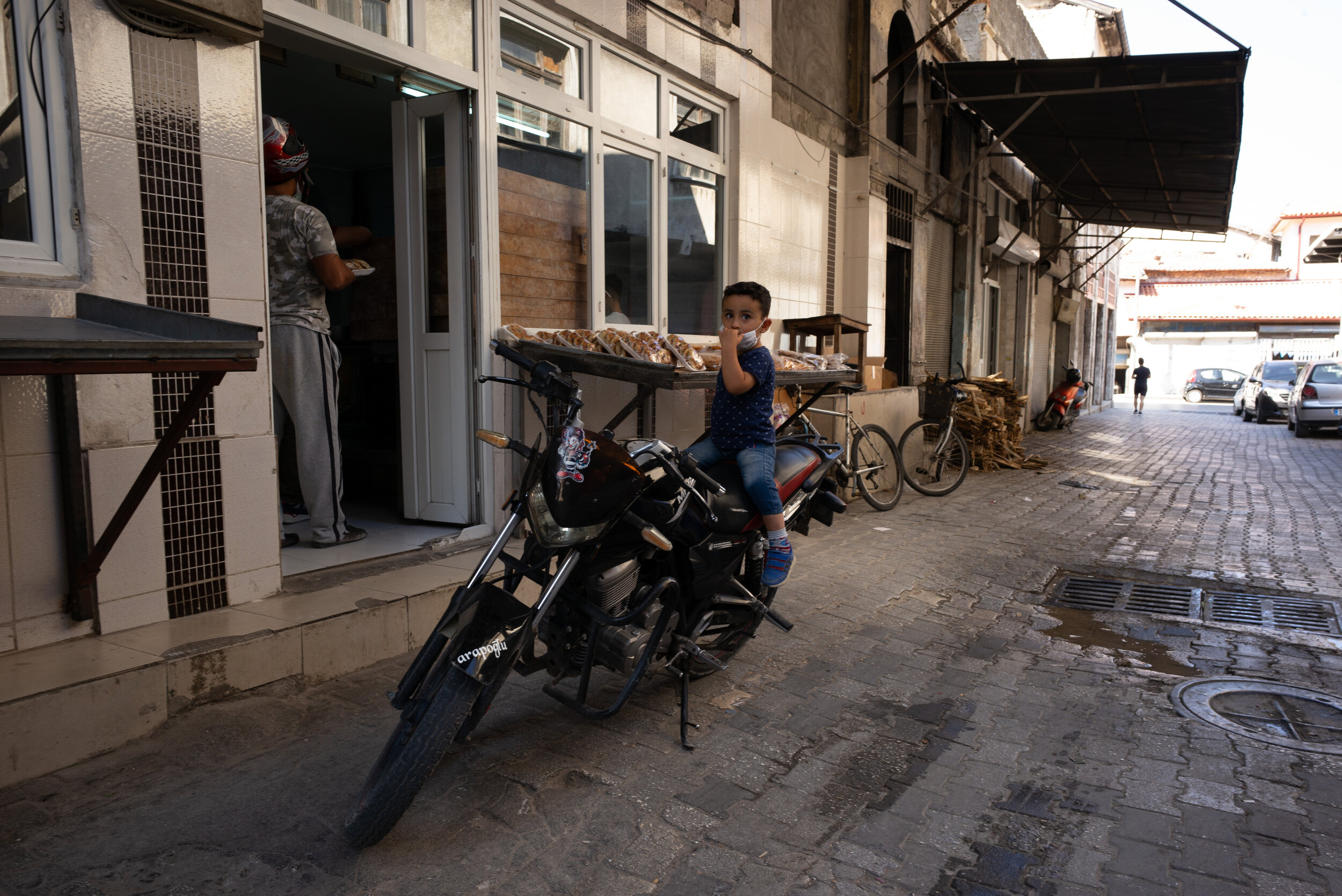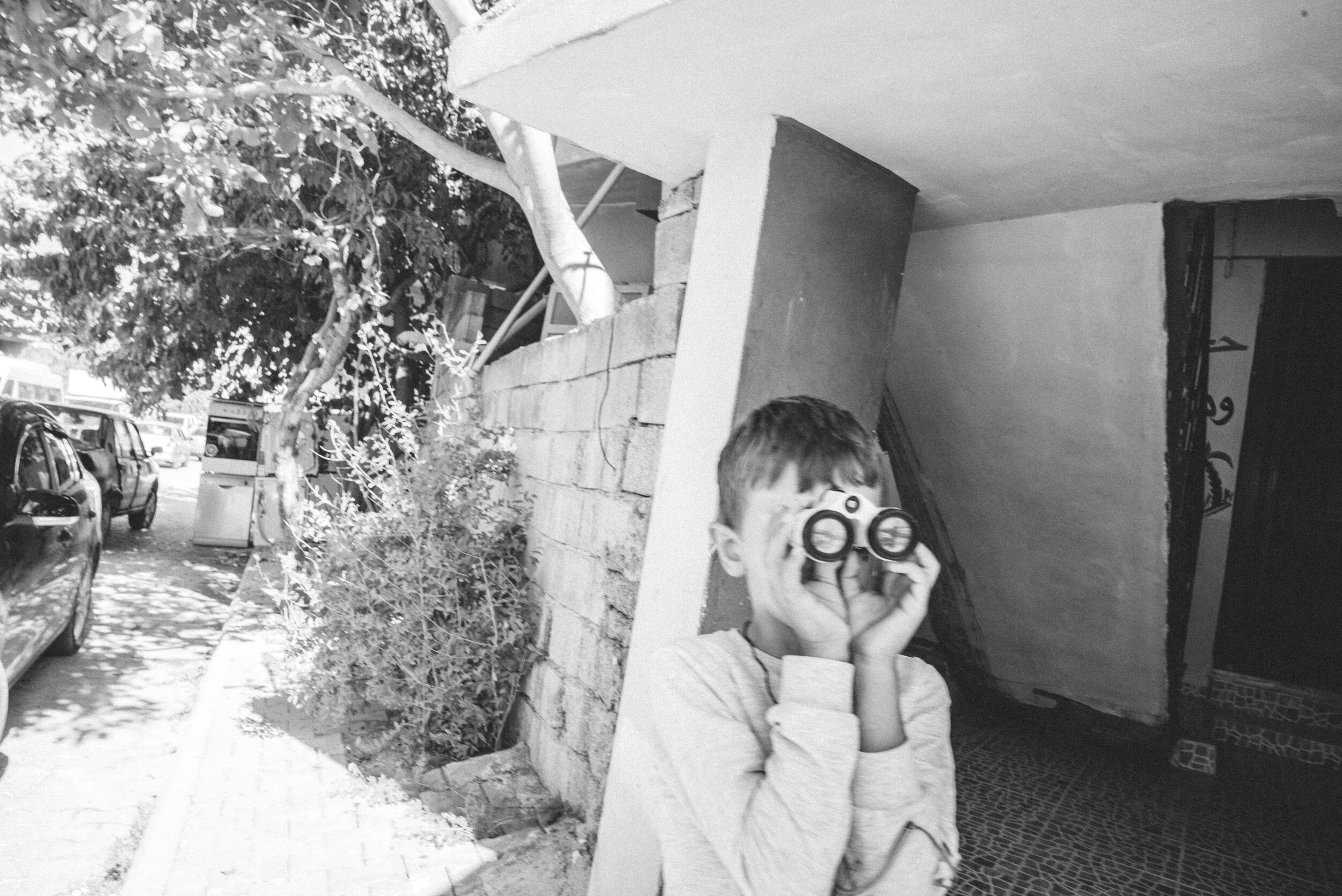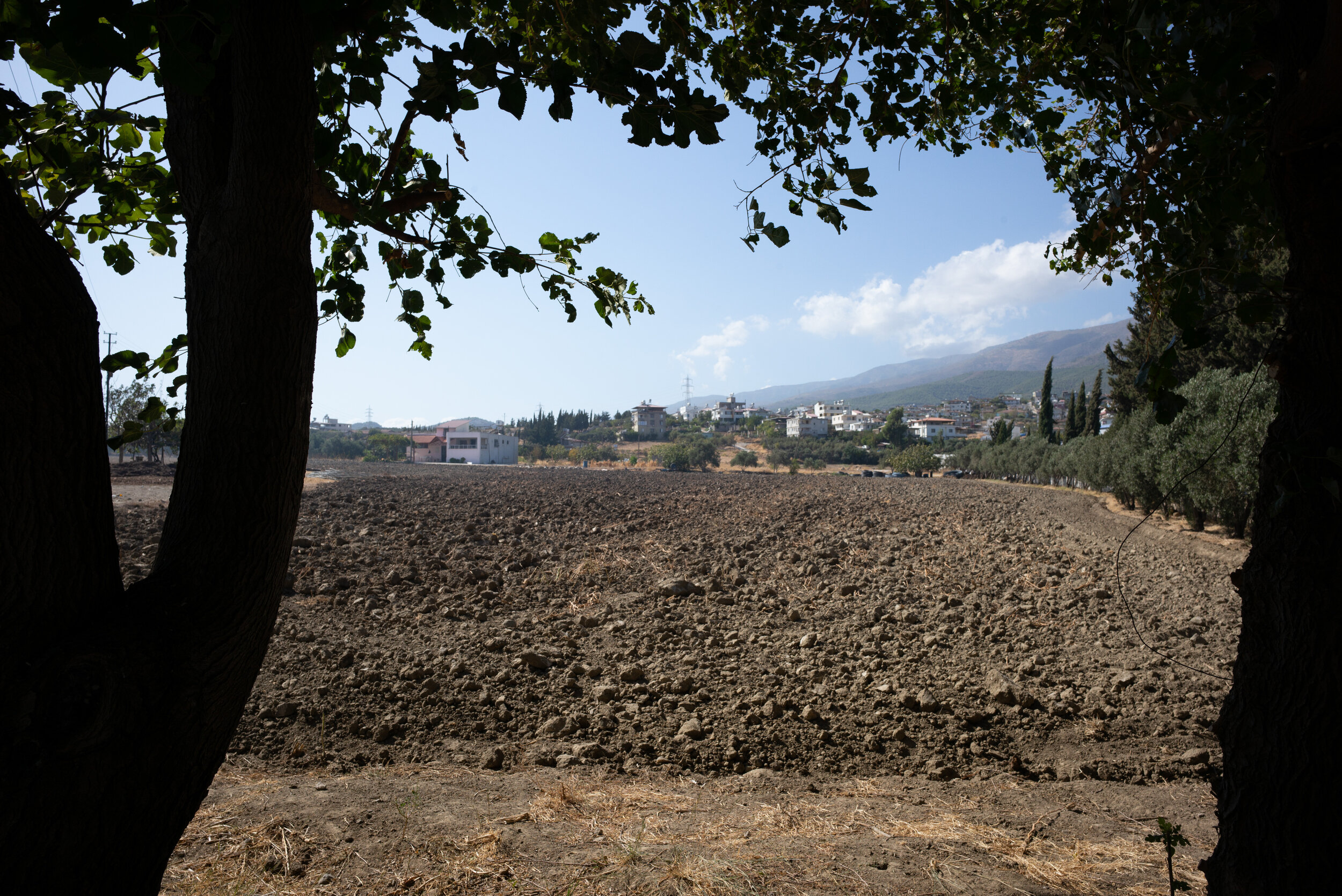Antakya, ancient Antioch, sits to the mountain: some of the narrow streets in the crowded residential districts offer staggering vistas of its rocky sides. In the mountain sits the Church of Saint Peter. It is one of Christianity’s oldest churches, a refuge overlooking the valley. Centuries old, the heart of it is established in a cave in mount Starius. Still visible are the remnants of the frescoes, which for ages have been seeped with water from the rock, and the floor mosaics almost worn off from the feet of those who used to gather here. A much younger statuette of the saint has been placed over the now mossy altar.
We visit alongside some other tourists: a group of younger ones who seem to have come for the view and the potential profile pictures. There is also an older couple, English-speaking Turks, excited to talk through the antiquities in the region and the sanctuaries of before. So many old stories that are intertwined here, the woman indicates. Her husband nods agreeably. I indicate, yes, yes, we visited Sanliurfa, too.
Furthermore, we stalk around the city markets and souks searching for Ibrahims, spot men playing backgammon at a thieving market. We hump along in the piercing rhythm of a drum, as we stand roadside to a wedding party.
Things that pass underneath our hotel window:
A young, tired-looking men sitting well-cushioned in the back of an open flat-bed truck. A set of couch and lounge chairs in camel-colored velt have been stuffed in the back of it. It looks like this passenger gave up halfway in a house-moving.
A bright, red little Renault, somewhat dusty. It’s nearing the end of the day now, Daniel and I have taken to this place and settled in, strewing clothes all over the spindly furniture and taking turns in the shower and on the balcony from which I write these notes. The street is somewhat slanted, and very busy. Vehicles tuff along, one after the other catching the last glowing light. This Renault I’m seeing: a proud moon sickle and national star have been airbrushed in white on the bonnet. I can’t see who is driving, because they’ve had to turn down the sun visor against the flaming orange. The rooftops are bathed in that same light, the cottage-like houses. But the car’s interior is decked out in a red-white-grey camp upholstery.
The most seamless instance of flirting, ever, when a slick-looking and meticulously groomed twentysomehing - just visible over his collar is a gold chain on his neck, catching the same sunset - comes wandering out of a snack bar and is joined matter-of-factly by a coy girl who had been standing on a corner of the sidewalk for a few minutes massaging her scalp through a mass of straightened black hair and tugging at her tanktop.
Trek notes, 15 October 2020: an interrupted attempt at hiking from Antakya to Belen
Click the map to enlarge.
Up close, the mountain range that surrounds and looms over Antakya is forested and dusty. We have taken a taxi, early in the morning, and hitched a spontaneous ride to the starting point of our prepared hike. It is the lowest entry pointing the mountainsides, where the tarmac touches a farmers’ dwelling before it turns away out of view, leading to a series of sharp bends. There is little traffic on this national road. Another, smaller footway forks off it. Trails lead to front doors, of lovely cottages stuck to the slopes. We take a left, passing by the village - that will be the last we’re likely to see until later that afternoon and many more kilometers up - and set out on a slow ascend.
The way is sandy: a very white, very fine dust is pushed up from the surface with every hiking boot we set down. What’s the stone? A day ago, on our move from Turkish Kurdistan to Hatay Province we passed quarries, but I’m not sure what the miners were after.
In any case a wafer-thin, stoney, film covers everything here. It dusts the lush woodlands in a silvery cover. I’m tempted to take the weeds and reeds along the path and drag them through the stream that I can hear coursing alongside us. To wash off an reveal the green. The water is lively and clear. Every now and then the path turns muddy with the deeply soaked tracts of irrigation pipers. Farmers drag the hose from the mountain spring to their sloping fields across the walkway. A little river crab has tried its way across, going sideways like they do, and happily sits in a puddle. One truck passes us. A second one, too. We throw halfhearted waves at the unseen occupants that pass us by.
Anyway, that is how we walk. As often, I trudge in Daniel’s wake. I make him stop in his tracks, twice - once for the crab so as not to crush its shell, a second time for a greenish lizard on the trail that is making for the water very slowly. Its limbs move jerkingly and then halt as it perceives the two lumbering bipeds. They - we - cast a looming shadow over what would have a been a toasty walkway for this reptile.
We can’t have been walking for much longer dan 20 minutes. Now, I notice the ground trembling softly. I hear the low grumbling sound of an approaching engine. Daniël and I are crouched down, looking at the lizard. I’m hoping that he can still snap a photo of it before the three of us are all covered in a cloud of white dust that will undoubtedly be springing up from the tires making their way to us. But then the engine cuts off. It takes a while for four sturdy pairs of boots to descend from the brandished truck and be planted, quite firmly, in a half-circle before the two of us humans. The newcomers stand to attention, framing the scene. The reptile seems to have frozen up from awareness off the mounting tensions, even before the two of us have stretched all the way back up. We do so a little unsteadily with the heavy packs shifting, our knees creaking.
All four men are wearing an unmistakable uniform. As I had remarked when I was still engrossed with the local wildlife, their laced boots have thick rubber soles. Above that are a camo pants and short-sleeved button-up polos. The word ‘Jandarma’, the name for the national police, is embossed on the red-and-blue nets vests two of the men have thrown on. There are four holsters on four hips, each holding a hand gun. One of them carries a rifle, the first thing my eye is caught on as I turn my glance upwards. The safety is cocked in place. There is a bit of a silence now that we can all watch each other in the face. Instead, Daniël and I look down at the lizard. The Jandarma look at us, looking at the lizard.
I keep a list in the back of the notebook:
Wildlife Spotted:
- A white (or maybe a sand-coloured?) hare that jumps up the moment Daniel has approached too close, in the fields between Sanliurfa and Suruç.
- Songbirds and parakeets
- Streetdogs: big beasts with a matted coat who’ll start to bark at the slightest surprise. The canines that make us more nervous are the ones that are not stray at all, but actually trained. Guard dogs are vicious.
- Fish in the pond at Ibrahim’s birth cave - although maybe not wild…
- Bats, spotted from the balcony of Mohamed Jafa
- A tiny river crab and a green-ish, dusty lizzard, spotted in the Antakya hillsides, just before the Jandarma spotted us...
Project notes, October 17, 2020
We are invited to meet Mohamed Jafa through Shadi Türk, the Syrian-Turkish fixer who comes to Antakya to join our team. He bounces energetically from the rental car in the early morning that we have agreed upon for our first meeting. It takes us awhile to talk him through the Meeting Abraham Project.
In that first hour, Daniel, Shadi and I sit across from each other in the Antakya hotel room, eagerly staring each other in the face and firing questions to each other to go fast, fast, fast and get to our story. “It is like you are looking for the fire and the water”, Shadi summarizes at one point, “because you want to understand how those can exist at the same time and affect the fabric of the place.” (I’m sitting on the floor, the only place to really think, and nod.)
17 October 2020: On this side of the lifeline, Mohamed Jafa
In the urban outskirts of Antakya, Turkey, one man works tirelessly to bring people located hundreds of miles away, to safety. All of that is done on a phone with near-limitless data, three hundred whatsapp messaging groups and ever-buzzing news apps. Sat on his balcony overlooking the autostrada, Mohamed Jafa scrolls on his phone. The bluish light from the screen pierces the darkening, early-evening sky.
Jafa was a Damascus resident, a civil engineer who turned to humanitarian work when the drove him out and he was forced to spend his days around Idlib. He eventually left for Turkey, in 2016, and stuck in Antakya. It’s close enough to still be preoccupied with his homeland; but also, his voluntary human rights and emergency aid work have raised the attention of those who would - in Russia, in Turkey, in Syria itself- pressure him. Best not to move too much and keep ruckus about his own person to a minimum. Working remote, those he irritates cannot really touch him.
Jafa’s mechanic’s brain is perfectly suited to dealing with the data and information coming out of the hot zones: numbers of people, needs and equipments. He talks to us about his work method. There are two main factors to any evacuation, for instance around Ghouta, that must be weighed, the 44-year-old says: the ways refugees will be transported from one Syrian city to another, safer one. And the army’s movements.
“I spend the whole day scrolling, looking, assessing the information that is sent my way”, Jafa says. These days, with a likely evacuation coming up, he is hardly sleeping. “I’ve become used to the work. But also, and despite the pressures, I feel responsible.” People cling to the idea of the pull-out, and sometimes those who feel a stroke of bad luck coming on, will call him from Syria directly to ask what to do. “It is hard to have people put their hope on you. I should know how that experience is - the brain simply cannot hold all of these crises at once, experiencing life as a refugee all of a sudden.” Jafa himself went through this too, and the Syrians’ pleas sometimes bring back his own memories. “When I talk to these people on the phone, from here, all it feels like I can do is be kind to them”, he says. To inject some humanity. To him, the phone has become like his life, the helpline to doing something worthwhile.



















